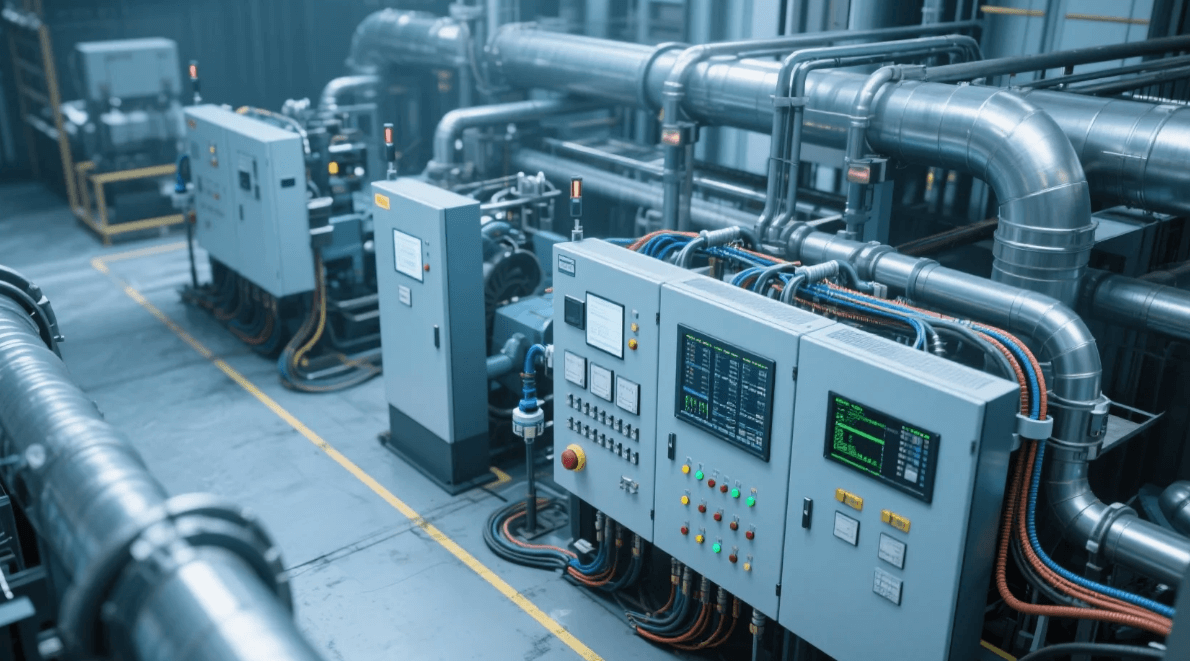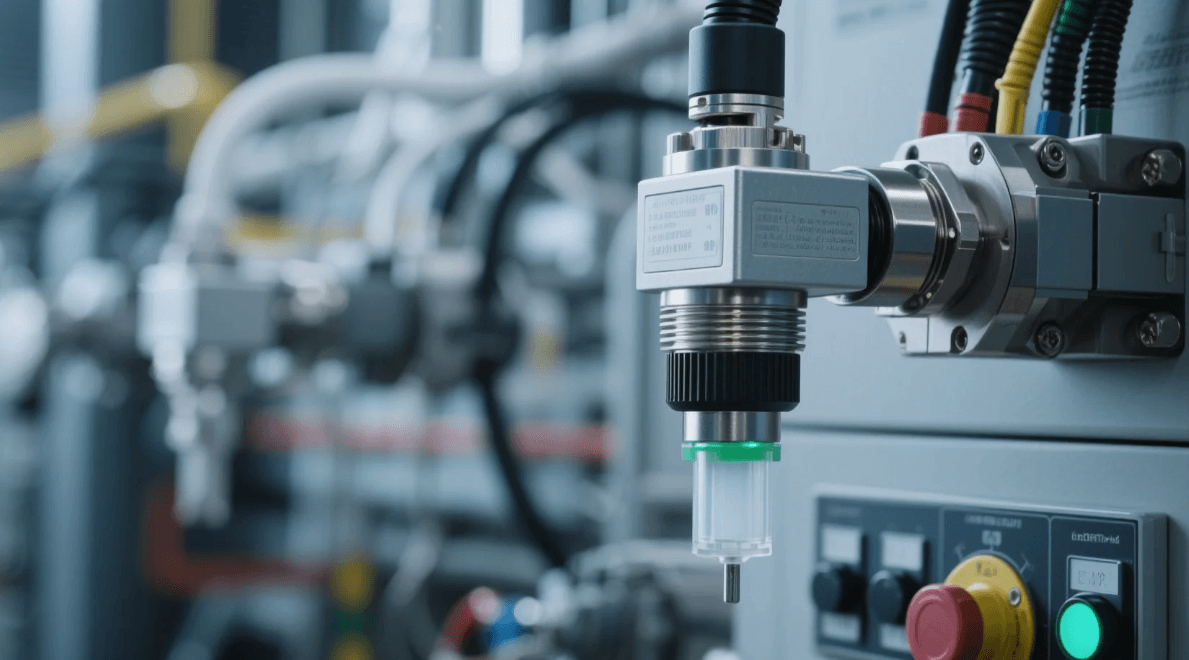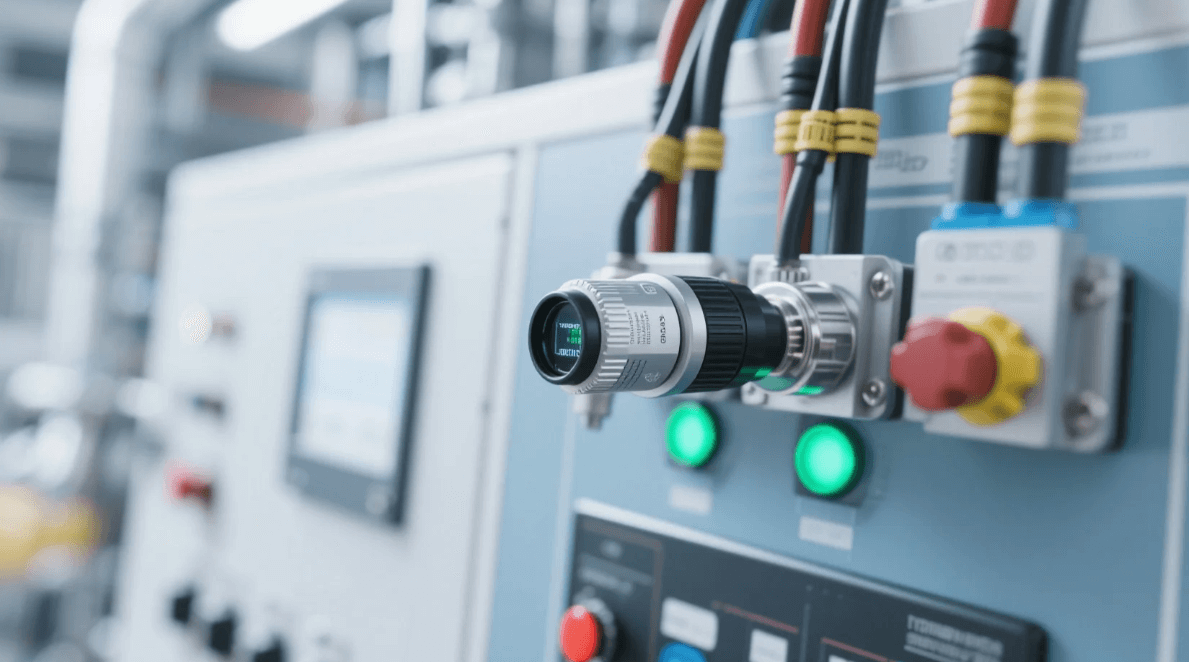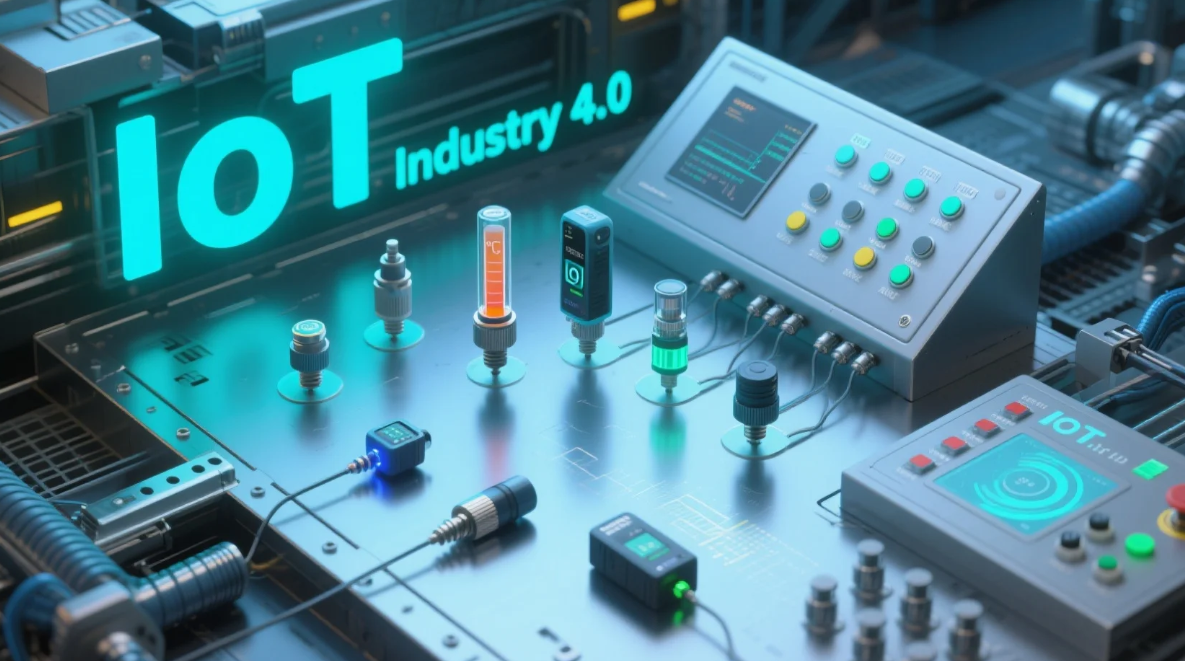- Allen-Bradley
- BANNIERE
- Baumer
- Bosch Rexroth
- Danfoss
- Eaton
- Festo
- Honeywell
- IFM
- Leuze
- Logitech
- Mitsubishi
- MTL
- Nidec
- Omron
- PEPPERL FUCHS
- Module de diagnostic avancé
- Câble de connexion
- Encodeur
- Barrière de bus de terrain
- Multiplexeur HART
- Capteur d'inclinaison
- Capteur inductif
- Unité d'évaluation RFID
- Commission de résiliation
- Capteur à ultrasons
- Actionneurs de vanne
- Barrière de sécurité et isolateur
- Barrière de protection contre les surtensions
- Phoenix Contact
- PILZ
- PULS
- Rexroth
- MALADIE
- Siemens
- Schneider
- Turck
- Triconex
- Wago
- Yokogawa
Comprendre les capteurs industriels dans le contrôle et l'automatisation des processus électriques

Dans le paysage industriel actuel, qui évolue rapidement, industrial sensors play a pivotal role in enhancing the efficiency, safety, and reliability of electrical process control and automation systems. By converting physical parameters into measurable electrical signals, these sensors enable real-time monitoring and control, facilitating informed decision-making and process optimization.
What Are Industrial Sensors?
Industrial sensors are devices designed to detect changes in physical conditions—such as temperature, pressure, flow, or proximity—and convert these changes into electrical signals. These signals are then interpreted by control systems to monitor and adjust industrial processes accordingly. In electrical process control and automation, sensors are integral to maintaining system stability, ensuring product quality, and preventing equipment failures.

Key Features of Industrial Sensors
1. Precision and Accuracy
Industrial sensors are engineered to provide precise measurements, ensuring that control systems receive accurate data for optimal performance. High-resolution sensing capabilities are essential for processes where even minor deviations can lead to significant issues.
2. Robustness and Durability
Designed to operate in harsh industrial environments, these sensors are built to withstand extreme temperatures, vibrations, and exposure to chemicals or moisture. Their durability ensures consistent performance over extended periods.
3. Real-Time Data Acquisition
The ability to provide real-time data is crucial for dynamic process control. Industrial sensors facilitate immediate detection of anomalies, allowing for swift corrective actions and minimizing downtime.
4. Integration with Control Systems
Modern industrial sensors are compatible with various control systems, including Programmable Logic Controllers (PLCs) and Distributed Control Systems (DCS). This compatibility ensures seamless integration and communication within automated processes.

Types of Industrial Sensors in Electrical Process Control
1. Temperature Sensors
These sensors measure temperature variations within industrial processes. Common types include thermocouples, Resistance Temperature Detectors (RTDs), and infrared sensors. They are vital in processes where temperature control is critical, such as chemical manufacturing and food processing.
2. Pressure Sensors
Pressure sensors monitor the force exerted by liquids or gases within a system. They are essential in applications like hydraulic systems, ensuring that pressure levels remain within safe and operational limits.
3. Flow Sensors
These devices measure the rate at which fluids or gases move through a system. Accurate flow measurement is crucial in industries like water treatment and chemical processing, where precise dosing is required.
4. Proximity Sensors
Proximity sensors detect the presence or absence of objects without physical contact. They are commonly used in assembly lines and packaging processes to ensure components are correctly positioned.
5. Level Sensors
Level sensors determine the level of substances—liquids, powders, or solids—within containers or tanks. They help prevent overflows or shortages, maintaining process continuity.
Applications dans le domaine du contrôle et de l'automatisation des processus électriques
1. Predictive Maintenance
By continuously monitoring equipment conditions, industrial sensors can predict potential failures before they occur. This proactive approach reduces unplanned downtime and maintenance costs.
2. Quality Assurance
Sensors ensure that processes operate within specified parameters, maintaining product quality and consistency. For instance, temperature sensors in food processing guarantee that products are cooked or stored at safe temperatures.
3. Energy Efficiency
Monitoring energy consumption through sensors allows industries to identify inefficiencies and implement energy-saving measures, leading to cost reductions and environmental benefits.
4. Safety Enhancements
Sensors detect hazardous conditions, such as gas leaks or equipment malfunctions, triggering alarms or shutdowns to protect personnel and equipment.
Benefits of Implementing Industrial Sensors
- Amélioration de l'efficacité opérationnelle: Real-time monitoring enables swift adjustments, optimizing process performance.
- Reduced Downtime: Early detection of issues prevents prolonged outages, maintaining productivity.
- Improved Product Quality: Consistent monitoring ensures products meet quality standards, reducing waste.
- Économies de coûts: Efficient processes and preventive maintenance lower operational expenses.
- Conformité réglementaire: Accurate data collection aids in meeting industry regulations and standards.
Integration with Modern Technologies
The advent of the Industrial Internet of Things (IIoT) has revolutionized how industrial sensors operate. Sensors now often feature wireless connectivity, enabling remote monitoring and data analysis. Integration with cloud-based platforms allows for advanced analytics, facilitating smarter decision-making and process optimization.
Défis et considérations
While the advantages are significant, implementing industrial sensors also presents challenges:
- Investissement initial: High-quality sensors and integration systems can require substantial upfront costs.
- Data Management: The vast amount of data generated necessitates robust data management and analysis tools.
- Maintenance: Sensors require regular calibration and maintenance to ensure accuracy and longevity.
Future Outlook
As technology advances, industrial sensors are expected to become more intelligent, with capabilities like self-diagnosis and adaptive learning. The integration of artificial intelligence and machine learning will further enhance their ability to predict and respond to process changes, driving the next wave of industrial automation.
Foire aux questions (FAQ)
Q1: How do industrial sensors contribute to energy efficiency?
By monitoring energy usage in real-time, sensors help identify areas where energy is wasted, allowing for corrective actions that reduce consumption and costs.Advanced Technology Services
Q2: Can industrial sensors operate in extreme environments?
Yes, many industrial sensors are designed to withstand harsh conditions, including extreme temperatures, pressures, and exposure to chemicals.
Q3: What is the role of sensors in predictive maintenance?
Sensors monitor equipment health indicators, such as vibration or temperature, to predict potential failures, enabling maintenance before breakdowns occur.
Q4: Are wireless industrial sensors reliable?
Modern wireless sensors have improved significantly, offering reliable data transmission and flexibility in installation, especially in hard-to-reach areas.
Q5: How do sensors integrate with existing control systems?
Industrial sensors are compatible with various control systems and can be integrated through standard communication protocols, ensuring seamless operation within existing infrastructures.
In conclusion, industrial sensors are indispensable in modern electrical process control and automation, offering numerous benefits that enhance operational efficiency, safety, and product quality. As technology continues to evolve, their role will only become more critical in driving industrial innovation.


